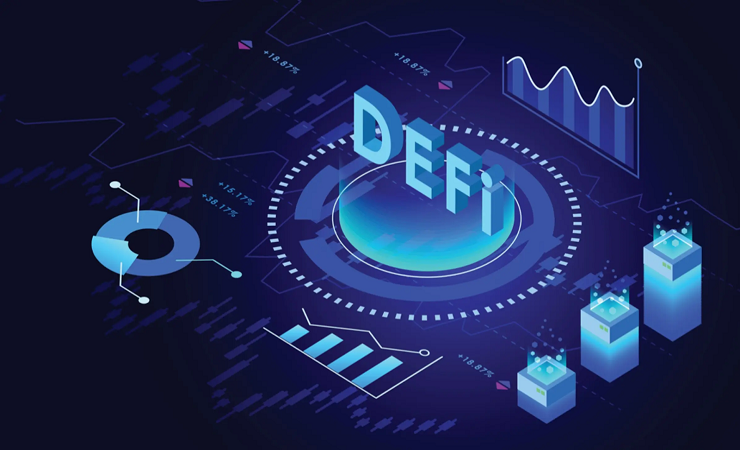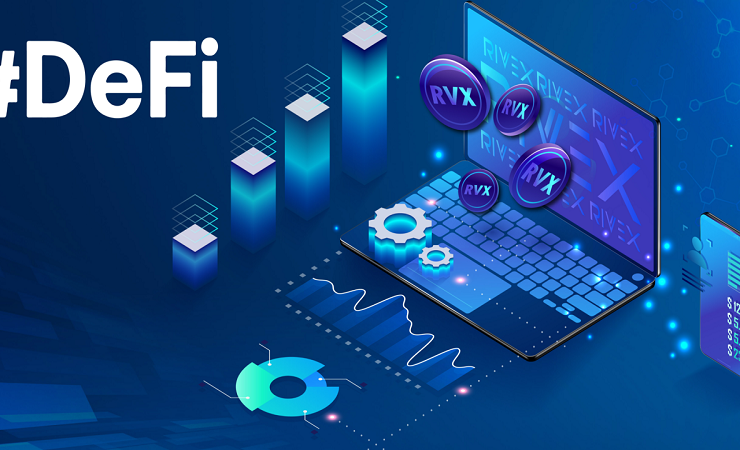Are you fed up with conventional financial systems that impose prohibitive transaction costs and impose access limitations to financial services? There is good news for you, though. The emergence of Decentralised Finance (DeFi) is changing how we perceive financial services and transactions. DeFi makes it easier, more cheap, and more secure for you to access banking services.
What then is DeFi? DeFi is a phrase used to describe a set of blockchain-based financial applications that are intended to be decentralised, open, and available to anybody with an internet connection. DeFi eliminates middlemen like banks and financial institutions, enabling peer-to-peer interactions between users and financial services. DeFi provides a range of financial applications that are revolutionising the cryptocurrency business, from decentralised exchanges to lending and borrowing platforms.
It is impossible to exaggerate DeFi’s significance in the bitcoin market. DeFi eliminates the need for traditional financial institutions, which can have high entry barriers, and allows everyone to access financial services. DeFi is an appealing choice for many consumers because it also provides greater transparency and security in financial transactions. So come along with us as we explore the fascinating world of DeFi and see how it is changing the banking sector in the USA and elsewhere.
Benefits of DeFi
The lower transaction fees of DeFi as compared to conventional financial systems are one of its main benefits in the USA. Many users may find it difficult to enter the market because traditional financial institutions frequently demand hefty transaction costs. DeFi removes middlemen and lowers expenses by processing transactions on the blockchain. This makes financial services more affordable for users, increasing their accessibility to those who might not have previously been able to afford it.
The easier access to financial services is another benefit of DeFi. For those who are underbanked or unbanked, accessing financial services can be challenging and time-consuming with traditional financial institutions. DeFi makes financial services more available to a wider range of individuals by offering them to anyone with an internet connection.
DeFi also delivers enhanced financial transaction security and transparency. Blockchain technology, which offers a high level of security and transparency, is used to build DeFi apps. As a result, users can monitor their transactions and confirm them on the blockchain, increasing accountability and lowering the possibility of fraud. In conclusion, DeFi’s benefits, which include cheaper transaction fees, greater accessibility, improved transparency, and higher security, make it a game-changer in the financial sector.
Applications for DeFi
Decentralised, transparent, and easily accessible financial services are made available through DeFi applications in the USA, revolutionising the financial sector. Decentralised exchanges (DEXs), which allow users to trade cryptocurrencies peer-to-peer without the need for middlemen, are one of the most well-known DeFi applications. Additionally growing in popularity are platforms for lending and borrowing, which give customers access to credit and loans without relying on conventional banks.
Stablecoins, which are cryptocurrencies whose value is tied to the value of a reliable asset like the US dollar, give cryptocurrencies stability and lessen their volatility. For people who want to preserve their cash in a cryptocurrency without the risk of price changes, this makes them an appealing alternative.
Finally, prediction markets let users to make predictions about the results of future events, such elections or sporting competitions. These markets give users a chance to make money by correctly anticipating how events will turn out. Summary: DEXs, lending and borrowing platforms, stablecoins, and prediction markets are just a few of the financial services offered by DeFi applications in the USA that are upending the cryptocurrency market.
DeFi’s difficulties
Although DeFi applications are revolutionising the banking sector in the USA, there are still some issues that need to be resolved. The volatility of cryptocurrencies is one of the main problems and can prevent many customers from using them. Users may find it challenging to estimate with accuracy the value of their investments due to the frequent price fluctuations of cryptocurrencies.
Limited scalability is a further issue. DeFi platforms may experience network congestion as more people use them, which will result in longer transaction processing times and increased costs. This may impede DeFi’s development and reduce its ability to appeal to a larger audience.
In the DeFi space, security threats and smart contract vulnerabilities are a big worry. DeFi applications are based on blockchain technology, but they are still susceptible to security flaws and hazards. Attackers may take advantage of smart contract weaknesses to steal money or personal data.
In conclusion, while DeFi has numerous benefits in the USA, it also has drawbacks such cryptocurrency volatility, constrained scalability, and security threats. To maintain its expansion and guarantee the security and accessibility of financial services for all consumers, the DeFi sector must address these issues.
Regulation of DeFi
DeFi regulation in the USA is a hotly debated issue, with numerous parties advocating for more control and lucidity. The DeFi regulatory framework is still developing at the moment, with various authorities adopting various regulatory strategies. For instance, the CFTC has been more receptive to innovation in the field while the SEC has adopted a tighter approach to DeFi.
Many people speculate about how laws may affect the development and use of DeFi. Some contend that more regulation will create a foundation for the sector to prosper and draw institutional investors. Others contend that overly strict regulations will discourage innovation and reduce the area’s potential for expansion.
In conclusion, DeFi regulations in the USA are now in a state of flux, and it is uncertain how these restrictions may affect the sector. To ensure the continuous development and accessibility of DeFi for all users, regulators must strike a balance between exercising oversight and fostering innovation.
Outlook for DeFi
As more people become aware of the advantages of decentralised banking, the future of DeFi in the USA appears bright and has the potential for widespread adoption. The market is also being shaped by new advances in DeFi technology, such as the introduction of non-fungible tokens (NFTs) and the incorporation of DeFi into conventional financial institutions.
It is impossible to overestimate DeFi’s influence on the financial sector’s future. DeFi has the ability to change the way we think about money and financial services by offering a decentralised and easily accessible alternative to conventional financial systems. The future of finance may be significantly impacted by the capacity to conduct transactions and obtain financial services without the need for middlemen or centralised governments.
In conclusion, DeFi has a promising future in the USA, with the potential for widespread acceptance, new trends and technological advancements, and a pivotal role in determining the direction of the financial sector. It will be intriguing to watch how the DeFi business affects the larger financial landscape in the years to come as it develops and matures.
Conclusion
DeFi is a new generation of cryptocurrencies that might completely alter the financial sector in the USA and elsewhere. It offers greater accessibility, transparency, and security due to its decentralised structure, which makes it a desirable substitute for conventional financial institutions. Users can engage in financial operations including lending, borrowing, and trading via DeFi without the aid of middlemen or centralised authority.
DeFi offers both investors and users interesting potential as it develops further. DeFi has a promising future because of the potential for wide adoption and the incorporation of cutting-edge technologies like smart contracts and NFTs.
DeFi offers a chance to engage in a quickly expanding sector that has the ability to improve the financial environment, so it is crucial for readers to research and invest in it. Readers can participate in the financial future and benefit from the new cryptocurrency era by learning about DeFi and making prudent investments.
Read More You May Like:














Post Comment